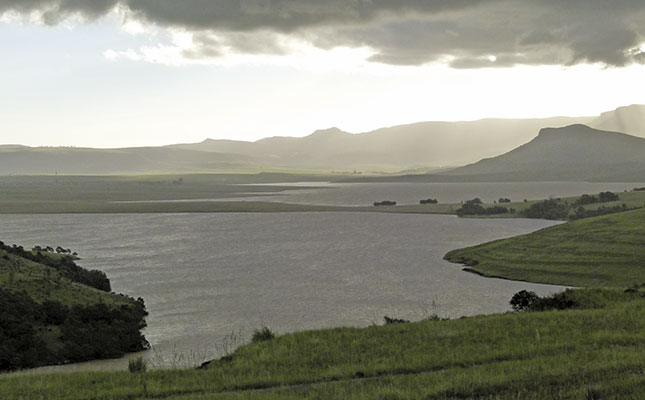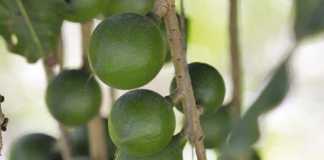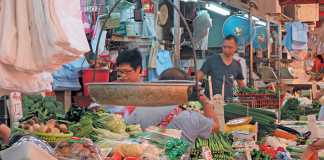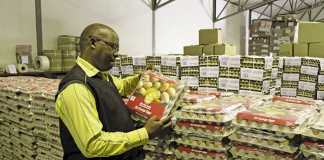
Photo: Grant Hollins
Amadlelo Agri is a partnership between Vuwa Investments (an empowerment company, which has a 35% stake in the company), 70 dairy farmers from the Eastern Cape and KZN (who have 49%) and 600 workers from the 70 dairy farms. It was established in 2004 to develop land, train local communities in farming and management practices, and establish dairies.
READ:Rhino poaching numbers down in Kruger, but spiking elsewhere
Amadlelo’s first five projects – the Fort Hare Dairy Trust, the Shiloh Dairy Trust, the Middledrift Dairy Farm, the Keiskamma Irrigation Scheme and the Ncera Macadamia Project – have already shown great potential for success, with at least two dairy farms reaching commercial sustainability well within a year of establishment. The success of these projects, and the fact that they are not limited to dairy farming, show great potential for the replication of a system. in the former Transkei currently produces an impressive 15 000l of milk a day.
The provincial Department of Rural Development and Agrarian Reform (DRDAR) and the national Department of Rural Development and Land Reform (DRDLR) provided R36 million for the dairy, and it is operated by Amadlelo Agri. The dairy is run on a profit share system whereby Amadlelo, who owns all movable assets, and Ncora Producers Assembly Secondary Co-op (NPASC), who owns all fixed assets and represent the 10 villages at Ncora, have a 50% share.
With a profit share system, the link between benefits and profit encourages those involved to reach financial sustainability rapidly, says dairy manager Peet Erasmus. “We can only be expected to be helped so far and then we must carry ourselves,” he says. “That’s where other projects fail, in my opinion. Eventually the money runs out and then it all collapses.”
The only way for a development project to succeed, he stresses, is to ”make it work as a business first, and the jobs and opportunities for the community will come from there”.
At the beginning in the 1970s
The dairy is part of the Ncora Irrigation Scheme. Established in 1976, it consists of 2 000ha dry land and a further 3 000ha irrigated land, 300ha of which is occupied by Ncora Dairy. Before 1994, the scheme worked well, says NPASC’s Luxolo Kente. “But after then the community vandalised all these things [infrastructure and equipment].”
In 2006, government indicated an intention to reinvest in the area. The 10 villages formed representative co-ops and Ncora Dairy was established in May 2012 as a development initiative.
The development aspect of the project emphasises the transfer of skills. At Ncora Dairy, this takes the form of an internship programme for agricultural students in the Eastern Cape. Zikhona Rwali, a former intern from Fort Cox College and now a permanent employee of the dairy, says her love of farming started when she was still at school.
“But it was tough. People would tease me because I was a girl who wanted to farm. “I learnt a lot last year as an intern in such a professional operation,” she says.
Rwali has refused other job offers in order to continue benefiting from the experience and knowledge that Amadlelo offers. “I really enjoy dairy farming and one day would like to own a farm,” she explains.
High-tech operation
Ncora Dairy utilises 283ha of its 330ha irrigated land for growing rye grass and clover, and leases a further 170ha to grow maize for use as feed and silage. The 1 300-strong mixed dairy herd is fed entirely on what is grown on the farm. It is comprised primarily of Jersey cattle, of which 300 are dry. The others are milked twice a day in a high-tech rotary parlour. An electronic scanner reads the ear tags of the cows as they enter the parlour. Each receives its calculated requirement of feed during milking.
Milk is collected every second day by trucks from Clover Dairies in Coega near Port Elizabeth. As many aspects of the production process as possible, including grazing management are measured and monitored. “We take a pasture walk once a week to measure the grass, and then graze and allocate the grass accordingly,” says Peet. “It’s important to know what you’re allocating to the cows. As they say in Afrikaans, ‘Ek weet nie, want ek meet nie’.”
Camps are grazed intensively, with the cattle spending 12 hours on pasture and two hours feeding on silage every day. AI is used throughout the year and the dairy has a breeding programme with Genimex to ensure top quality replacements for the milking herd.
Further development
Five more dairies, modelled on Ncora, are planned for the region, says NPASC’s Phumzile Boyana. “We’ve started the first one already. The land is the same as here [300ha] but it will also lease 80ha from the irrigation scheme.”
The DRDLR has provided R38 million for the establishment of this dairy and Peet is confident it will be operating at full capacity by the end of the year. Ncora Dairy’s success has also provided impetus for further development in the region. In April this year, the Eastern Cape Rural Development Agency (ECRDA) and Eastern Cape Development Corporation (ECDC) confirmed that R91 million would be spent over three years to develop an
agro-processing initiative on the Ncora Irrigation Scheme.
Through the Ncora/Qhumanci Producers Assembly Secondary Co-op, the 706 beneficiary land holders of the
Ncora Irrigation Scheme have provided 955ha of land, now planted with white maize, for the initiative. “A milling plant will be established where the processing of the maize crop will be done, silos will be built and mechanisation units will be established in the form of tractors and related equipment,” says ECRDA CEO Thozi Gwanya.
Amadlelo Agri is a partnership between Vuwa Investments (an empowerment company, which has a 35% stake in the company), 70 dairy farmers from the Eastern Cape and KZN (who have 49%) and 600 workers from the 70 dairy farms. It was established in 2004 to develop land, train local communities in farming and management practices, and establish dairies.
Amadlelo’s first five projects – the Fort Hare Dairy Trust, the Shiloh Dairy Trust, the Middledrift Dairy Farm, the Keiskamma Irrigation Scheme and the Ncera Macadamia Project – have already shown great potential for success, with at least two dairy farms reaching commercial sustainability well within a year of establishment.
The success of these projects, and the fact that they are not limited to dairy farming, show great potential for the replication of a system.
About Amadlelo Agri
Amadlelo Agri is a partnership between Vuwa Investments (an empowerment company, which has a 35% stake in the company), 70 dairy farmers from the Eastern Cape and KZN (who have 49%) and 600 workers from the 70 dairy farms. It was established in 2004 to develop land, train local communities in farming and management practices, and establish dairies.
Amadlelo’s first five projects – the Fort Hare Dairy Trust, the Shiloh Dairy Trust, the Middledrift Dairy Farm, the Keiskamma Irrigation Scheme and the Ncera Macadamia Project – have already shown great potential for success, with at least two dairy farms reaching commercial sustainability well within a year of establishment.
The success of these projects, and the fact that they are not limited to dairy farming, show great potential for the replication of a system.
This article was originally published in the 16 May 2014 issue of Farmer’s Weekly.













